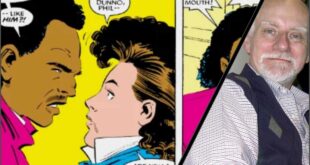Stan Lee Dispels Myth That X-Men Were Originally Envisioned as LGBTQ Allegory
In a 2007 radio interview that has recently resurfaced, comic book icon Stan Lee directly refuted a widespread assumption that his X-Men characters were conceived as an allegory for the LGBTQ+ community.
Speaking on Coast to Coast AM with guest host Ian Punnett, Lee stated unambiguously that the analogy was not his intention when creating the X-Men in the 1960s.
“No, it was the furthest thing from my mind,” Lee said when asked if the X-Men were meant to symbolize gay rights issues at the time. “I was just trying to think of something that would be dramatic.”
Lee explained that the theme of mutants feared and persecuted by society for their differences was simply a plot device to drive engaging stories. There was no conscious paralleling of the X-Men’s struggles with real-world discrimination against LGBTQ+ people.
“I wanted them to be colorful and dramatic and something that nobody had seen before,” Lee said. “The whole thing was to try to come up with new stuff.”
Lee’s comments directly contradict a popular notion among critics and fans that the X-Men were conceptualized as an allegory for LGBTQ+ oppression and the gay rights movement. This belief has become widely accepted over the years.
But Lee’s own words in the vintage interview make it clear this was not his intent. While later X-Men stories did tackle LGBTQ+ discrimination more overtly, Lee designed the characters purely for fantasy storytelling, not as social commentary.
Lee’s revelations provide rare insight into his original aspirations for the X-Men and may prompt reevaluation of certain assumptions around these iconic superheroes.
The X-Men’s Legacy
Despite Lee’s clarification, the X-Men’s narrative of exclusion and acceptance has resonated with a variety of audiences, including those who see parallels between the mutants’ struggles and the real-world experiences of the LGBTQ+ community. This connection has been further cemented by later storylines and character developments that have explicitly addressed themes of identity and sexuality.
It is a testament to the enduring nature of the X-Men that their story has been interpreted in ways that extend beyond their original creation. The ability of comic books to serve as a mirror for societal issues, whether intentional or coincidental, is part of what makes the medium so powerful.
Final Thoughts
The revelation from Stan Lee may reframe some discussions about the origins of the X-Men, but it doesn’t negate the impact the stories have had on fans who found solace and strength in their pages. As the debate on the “wokeness” of comic book characters continues, it’s important to remember the fluidity of art and its capacity to inspire and support its audience in ways that creators might never have imagined.
As the X-Men continue to evolve with the times, their legacy as champions of the underdog remains as relevant and potent as ever, regardless of the specific allegories they have come to represent.
 Retro Replay Retro Replay gaming reviews, news, emulation, geek stuff and more!
Retro Replay Retro Replay gaming reviews, news, emulation, geek stuff and more!




